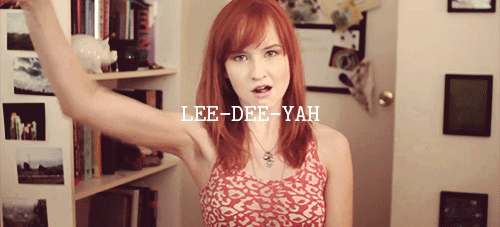 So... I did not love reading the actual book, but I did, however, enjoy watching these videos. I found myself completely captivated and entertained by the progression of things and seeing all of the modern twists they put on the classic story. I think the characters are portrayed well, but I feel like there is just SO much drama, like a whole mess of drama all the time and its exhausting.
So... I did not love reading the actual book, but I did, however, enjoy watching these videos. I found myself completely captivated and entertained by the progression of things and seeing all of the modern twists they put on the classic story. I think the characters are portrayed well, but I feel like there is just SO much drama, like a whole mess of drama all the time and its exhausting.There were a few things I did not enjoy too much though, 1. every five minutes having to wait for it to cue up the next video along with ads, and 2. the other videos that branch from this (Lydia's videos, Charlottes sister's videos, etc). I did find quite a few times difficult to watch because they were over dramatic, and I simply was getting annoyed by it. For example, episode 87... while I understand the gravity of the situation that Lydia is in and that it is a very hard time, I think the acting and such was a tad over the top.
Also, side note: in episode 4 Lizzie says that her mom was freaking out and then mentions that she wonders how many videos will start like that, and let me tell you, its none. Yes, her mom freaking out is mentioned other times, but no other video ever starts on that note.







